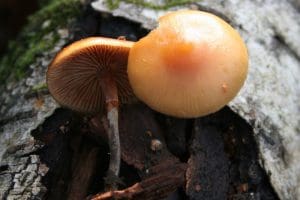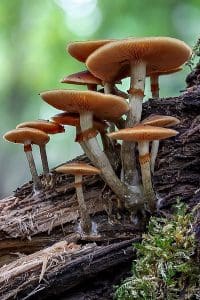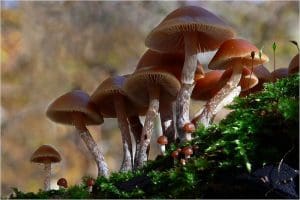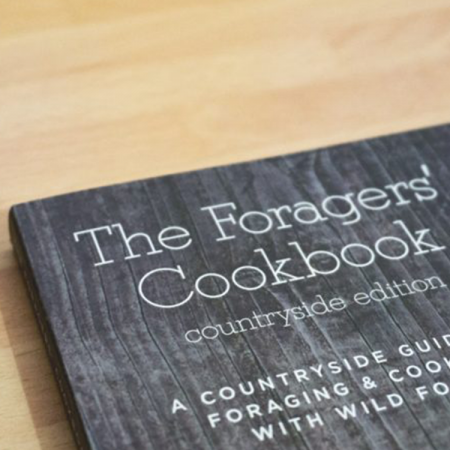Funeral bell Mushroom / Autumn / Winter / Toxic
Prepare for a chilling revelation as we unmask the hidden danger of Funeral Bell Mushroom (Galerina marginata), a species that exudes a deadly elegance.
Join us on a journey where beauty and toxicity intertwine. With their small, bell-shaped caps and subtle brown hues, Funeral Bell Mushrooms can evoke a sense of mysterious allure. However, beneath their delicate appearance lies a grave threat to human health.
Learn to identify their distinguishing features, explore their preferred habitats, and understand the toxic compounds they contain. Ingestion of Funeral Bell Mushrooms can lead to severe liver damage or even death. Awareness and knowledge are paramount when dealing with this lethal fungus. Let this be a stark reminder of the importance of accurate identification, responsible foraging practices, and the preservation of life. Respect the hidden dangers that nature presents and navigate the world of mushrooms with unwavering caution. Stay vigilant, for the Funeral Bell Mushrooms serve as a somber reminder of the lethal elegance that can lurk within the natural world.
Common names
Funeral bells, Deadly Skull caps
Botanical name
Galerina Marginata
Meaning of Scientific classification
The name derives from Galerina meaning helmet-like and Marginata meaning bordered in reference to the generally lighter margin edge when compared to the cap centre.
Class: Agaricomycetes
Order: Agaricales
Kingdom: Fungi
Division: Basidiomycota
Could be confused with:
Velvet shanks (velvet shanks have a velvety stem and lack the skirt),
Wood tufts (Very similar in appearance making the wood tuft unsafe to forage for)
Distribution
Fairly common in the UK.
Key features and habitat of Funeral Bell mushrooms
These mushrooms contain the same toxins as Death caps so are potential deadly, therefore it’s a good mushroom to learn and avoid.
Cap
Caps are 1- 8 cm across and generally have a central umbo or nipple, with age the caps expand and almost flatten out. The caps and orange-brown to yellow-brown, generally lighter towards the edge.

Gills
The gills are crowded, attached and are pale brown to yellow-brown in colour.
Stem & Skirt
Stems are 2-8 cm in length, lighter at the top and almost black at the base. The stems have a small ring towards the top but this may be nonexistent in older specimens.

Spore Print
Brown & Ellipsoid
Season
They can be found virtually all year round but are more common in spring and autumn
Habitat
They are found on rotting logs and woodchip either evergreen or broadleaved species.
Edible uses
This is a seriously toxic mushroom and should not be consumed.







Leave a Reply
You must be logged in to post a comment.